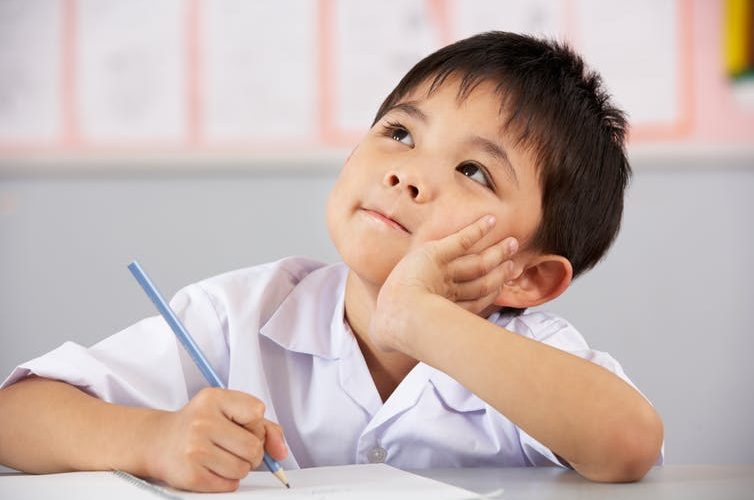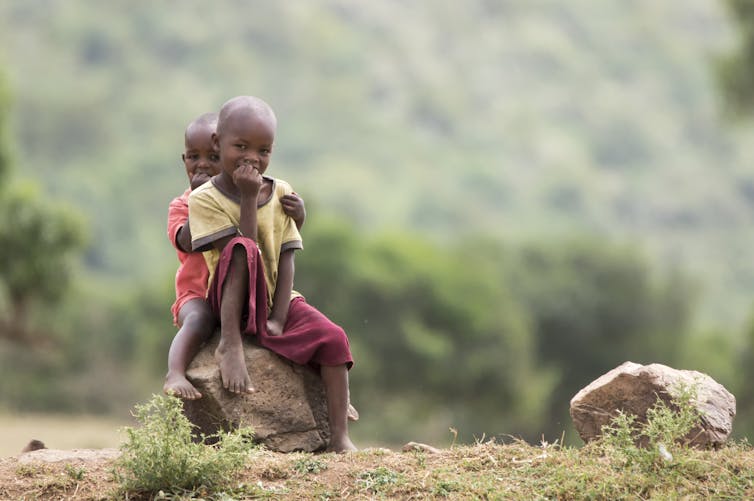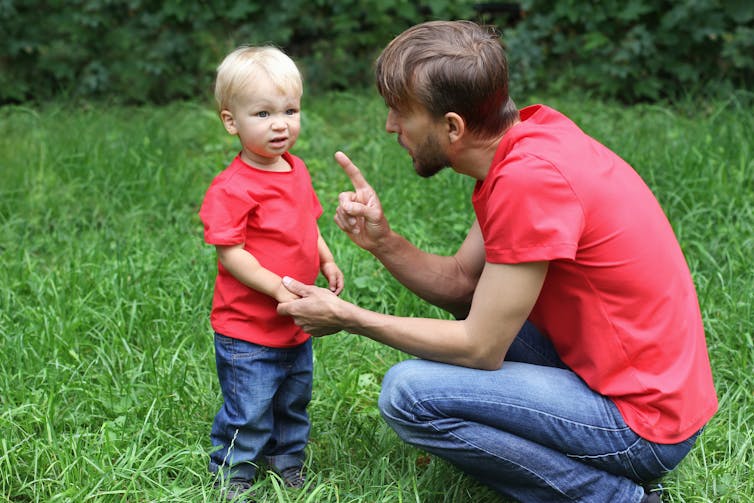
Monkey Business Images/Shutterstock
By Dr Ching-Yu Huang, Bournemouth University.
From educational toys to governmental guidelines and detailed nursery progress reports, there are lots of resources available to help parents track and facilitate their children’s development. But while there are tricks we can use to teach children to talk, count, draw or respect others, a surprisingly big part of how they develop is determined by the culture they grow up in.
Child development is a dynamic, interactive process. Every child is unique in interacting with the world around them, and what they invoke and receive from others and the environment also shapes how they think and behave. Children growing up in different cultures receive specific inputs from their environment. For that reason, there’s a vast array of cultural differences in children’s beliefs and behaviour.
Language is one of the many ways through which culture affects development. We know from research on adultsthat languages forge how people think and reason. Moreover, the content and focus of what people talk about in their conversations also vary across cultures. As early as infancy, mothers from different cultures talk to their babies differently. German mothers tend to focus on their infants’ needs, wishes or them as a person. Mothers of the African tribal group Nso, on the other hand, focus more on social context. This can include the child’s interactions with other people and the rules surrounding it.

Masai children. Syndromeda/Shutterock
This early exposure affects the way children attend to themselves or to their relationship with others – forming their self image and identity. For example, in Western European and North American countries, children tend to describe themselves around their unique characteristics – such as “I am smart” or “I am good at drawing”. In Asian, African, Southern European and South American countries, however, children describe themselves more often around their relationship with others and social roles. Examples of this include “I am my parents’ child” or “I am a good student”.
Because children in different cultures differ in how they think about themselves and relate to others, they also memorise events differently. For example, when preschoolers were asked to describe a recent special personal experience, European-American children provided more detailed descriptions, recalled more specific events and stressed their preferences, feelings and opinions about it more than Chinese and Korean children. The Asian children instead focused more on the people they had met and how they related to themselves.
Cultural effects of parenting
Parents in different cultures also play an important role in moulding children’s behaviour and thinking patterns. Typically, parents are the ones who prepare the children to interact with wider society. Children’s interaction with their parents often acts as the archetype of how to behave around others – learning a variety of socio-cultural rules, expectations and taboos. For example, young children typically develop a conversational style resembling their parents’ – and that often depends on culture.
European-American children frequently provide long, elaborative, self-focused narratives emphasising personal preferences and autonomy. Their interaction style also tends to be reciprocal, taking turns in talking. In contrast, Korean and Chinese children’s accounts are usually brief, relation-oriented, and show a great concern with authority. They often take a more passive role in the conversations. The same cultural variations in interaction are also evident when children talk with an independent interviewer.

Children in the Western world question their parents’ authority more. Gargonia/Shutterstock
Cultural differences in interactions between adults and children also influence how a child behaves socially. For instance, in Chinese culture, where parents assume much responsibility and authority over children, parents interact with children in a more authoritative manner and demand obedience from their children. Children growing up in such environments are more likely to comply with their parents’ requests, even when they are reluctant to do so.
By contrast, Chinese immigrant children growing up in England behave more similarly to English children, who are less likely to follow parental demands if unwilling.
From class to court
As the world is getting increasingly globalised, knowledge regarding cultural differences in children’s thinking, memory and how they interact with adults has important practical implications in many areas where you have to understand a child’s psychology. For instance, teachers may need to assess children who come from a variety of cultural backgrounds. Knowing how children coming from a different culture think and talk differently can help the teacher better interview them as part of an oral academic test, for example.
Another important area is forensic investigations. Being aware that Chinese children tend to recall details regarding other people and be brief in their initial response to questions may enable the investigator to allow more time for narrative practice to prepare the child to answer open-ended questions and prompt them with follow up questions.
Also, knowing that Chinese children may be more sensitive and compliant to authority figures – and more obedient to a perpetrator within the family – an interviewer may need to spend more time in building rapport to help the child relax and reduce their perceived authority. They should also be prepared to be patient with reluctance in disclosing abuse within families.
While children are unique and develop at their own pace, the cultural influence on their development is clearly considerable. It may even affect how quickly children reach different developmental milestones, but research on this complicated subject is still inconclusive. Importantly, knowledge about cultural differences can also help us pin down what all children have in common: an insatiable curiosity about the world and a love for the people around them.
Dr Ching-Yu Huang, Lecturer in Psychology, Bournemouth University
This article was originally published on The Conversation. Read the original article.











 Beyond Academia: Exploring Career Options for Early Career Researchers – Online Workshop
Beyond Academia: Exploring Career Options for Early Career Researchers – Online Workshop UKCGE Recognised Research Supervision Programme: Deadline Approaching
UKCGE Recognised Research Supervision Programme: Deadline Approaching SPROUT: From Sustainable Research to Sustainable Research Lives
SPROUT: From Sustainable Research to Sustainable Research Lives BRIAN upgrade and new look
BRIAN upgrade and new look Seeing the fruits of your labour in Bangladesh
Seeing the fruits of your labour in Bangladesh ECR Funding Open Call: Research Culture & Community Grant – Apply now
ECR Funding Open Call: Research Culture & Community Grant – Apply now ECR Funding Open Call: Research Culture & Community Grant – Application Deadline Friday 12 December
ECR Funding Open Call: Research Culture & Community Grant – Application Deadline Friday 12 December MSCA Postdoctoral Fellowships 2025 Call
MSCA Postdoctoral Fellowships 2025 Call ERC Advanced Grant 2025 Webinar
ERC Advanced Grant 2025 Webinar Update on UKRO services
Update on UKRO services European research project exploring use of ‘virtual twins’ to better manage metabolic associated fatty liver disease
European research project exploring use of ‘virtual twins’ to better manage metabolic associated fatty liver disease